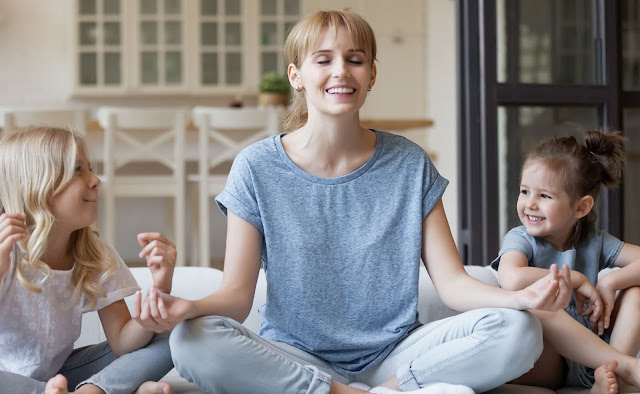Though mindfulness is not brand-new, it has only recently gained traction amongst Westerners in recent years. Teaching mindfulness to children has recently been found to be beneficial, as per the experts. Mindfulness is all about becoming well aware of what is happening around you and staying in the present. And, in this technological world, every individual must be able to live in the moment. That is why we suggest you get your kids enrolled in the mindfulness for children course at our academy.
But, apart from making them join the course, there are many ways that parents can now begin at home!
1. Keep It Basic with Bell Listening Exercise
Begin with ringing a bell and then ask the kids to listen attentively by paying attention to each vibration. Advise them to stay silent and put their hands up whenever the bell stops. After the ringing stops, tell them to be quiet for a minute and listen carefully to other sounds. Then ask the students to name every sound they heard during that minute.
While this activity is enjoyable, it also helps children connect to the present moment and their senses' responsiveness.
2. Breath Counting
Teach your youngster to pay attention to their breathing as a simple method to calm their racing thoughts. Tell them to shut their eyes and take a few deep breaths to calm themselves down. Ask them to count each inhale and exhale as 'one' and 'two.'
Their breathing cycle should not be affected by this method. Rather, this must help them increase their awareness of their breaths and how mindful breathing affects their body and lungs.
3. Try a Blindfold Test
The tendency to gobble down all the food on their plates without noticing its flavor is common amongst kids. To help kids better understand their taste buds, make them participate in a blindfolded tasting session.
Using a banana or a strawberry as a guide, blindfold your toddler. Ask them to chew for a minute and then tell you what it is. This one will be a great activity!
You can get your hands on the mindfulness for children course to know more about programs of Emotional Regulation for Children and tactics. Please ensure to visit our website.

Comments
Post a Comment